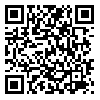Volume 9, Issue 3 (1-2022)
jmsthums 2022, 9(3): 22-36 |
Back to browse issues page
Download citation:
BibTeX | RIS | EndNote | Medlars | ProCite | Reference Manager | RefWorks
Send citation to:



BibTeX | RIS | EndNote | Medlars | ProCite | Reference Manager | RefWorks
Send citation to:
S H, A M, A T, Mirmoosavi S J, M M. The effect of camel milk on pain, anxiety and spatial memory in male offspring of female rat model of autism induced by valproic acid. jmsthums 2022; 9 (3) :22-36
URL: http://jms.thums.ac.ir/article-1-972-en.html
URL: http://jms.thums.ac.ir/article-1-972-en.html
1- Master student of Medical Physiology, Department of Physiology and Pharmacology, Faculty of Medicine, Sabzevar University of Medical Sciences, Iran
2- P.h.D student of medical biotechnology, Department of Medical Biotechnology and Nanotechnology, Faculty of Medicine, Mashhad University of Medical Sciences, Iran
3- Mashhad University of Medical Sciences
4- Assistant Professor in Iranian Research Center for Healthy Aging, Sabzevar University of Medical Sciences, Sabzevar, Iran
5- Professor of Psychiatry and Behavioral Sciences Research Center, Mashhad University of Medical Sciences, Mashhad, IRAN
2- P.h.D student of medical biotechnology, Department of Medical Biotechnology and Nanotechnology, Faculty of Medicine, Mashhad University of Medical Sciences, Iran
3- Mashhad University of Medical Sciences
4- Assistant Professor in Iranian Research Center for Healthy Aging, Sabzevar University of Medical Sciences, Sabzevar, Iran
5- Professor of Psychiatry and Behavioral Sciences Research Center, Mashhad University of Medical Sciences, Mashhad, IRAN
Abstract: (4739 Views)
Background & Aim: Autism is a disorder characterized by anxiety, impairment in memory, and pain. Camel milk has antioxidant, immunomodulatory, and anti-inflammatory properties. This study aimed to determine the effect of camel milk on pain, anxiety, and spatial memory in male offspring of female model rats induced via valproic acid.
Methods: In an experimental study, female Wistar rats were injected intraperitoneally valproic acid (500 mg/kg) on day 12.5 of gestation. Then, male offspring were divided into five groups (n=6) including Naïve, risperidone, raw camel milk + risperidone, pasteurized camel milk + risperidone, and valproic acid. In the treatment phase, risperidone was injected at a dose of 0.2 mg/kg, and camel milk was given 10 ml/kg daily for 42 days with a gavage needle on the 35th day after the birth. Pain response, anxiety test, and spatial memory were measured before treatment on days 30 to 35 and also after completion of treatment on days 77-84. Data were analyzed using one-way and two-way ANOVA and Tukey’s multiple comparison tests
Results: After receiving valproic acid and birth of offspring, there was a significant difference in pain response, anxiety, and spatial learning and memory between the naïve group compared to the entire groups after 42 days of treatment (p <0.05, p <0.01). P <0.001, respectively). Response to pain and anxiety decreased after receiving camel milk. Also, there was a significant difference between raw camel milk + risperidone and risperidone group in pain response test and platform finding time in spatial memory test (p <0.05).
Conclusion: With the improvement of autism symptoms such as anxiety, memory impairment and learning, camel milk can probably be recommended as a suitable dietary supplement for autistic patients.
Methods: In an experimental study, female Wistar rats were injected intraperitoneally valproic acid (500 mg/kg) on day 12.5 of gestation. Then, male offspring were divided into five groups (n=6) including Naïve, risperidone, raw camel milk + risperidone, pasteurized camel milk + risperidone, and valproic acid. In the treatment phase, risperidone was injected at a dose of 0.2 mg/kg, and camel milk was given 10 ml/kg daily for 42 days with a gavage needle on the 35th day after the birth. Pain response, anxiety test, and spatial memory were measured before treatment on days 30 to 35 and also after completion of treatment on days 77-84. Data were analyzed using one-way and two-way ANOVA and Tukey’s multiple comparison tests
Results: After receiving valproic acid and birth of offspring, there was a significant difference in pain response, anxiety, and spatial learning and memory between the naïve group compared to the entire groups after 42 days of treatment (p <0.05, p <0.01). P <0.001, respectively). Response to pain and anxiety decreased after receiving camel milk. Also, there was a significant difference between raw camel milk + risperidone and risperidone group in pain response test and platform finding time in spatial memory test (p <0.05).
Conclusion: With the improvement of autism symptoms such as anxiety, memory impairment and learning, camel milk can probably be recommended as a suitable dietary supplement for autistic patients.
Keywords: Autism spectrum disorder, Anxiety, Memory and learning tests, Camelus milk, Valproic acid, Rat
Type of Study: Research |
Subject:
Special
Received: 2021/08/8 | Accepted: 2021/11/29 | Published: 2022/02/5
Received: 2021/08/8 | Accepted: 2021/11/29 | Published: 2022/02/5
Send email to the article author
| Rights and permissions | |
 | This work is licensed under a Creative Commons Attribution-NonCommercial 4.0 International License. |






